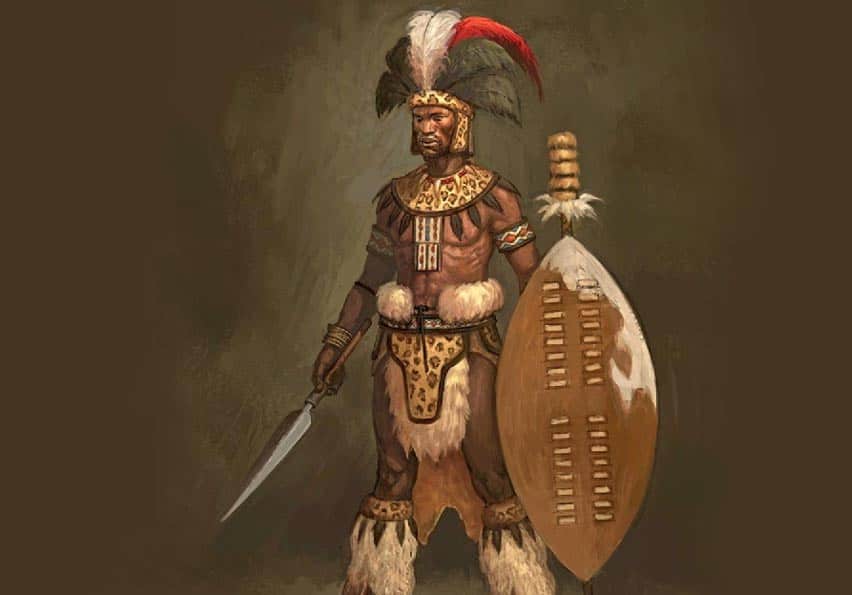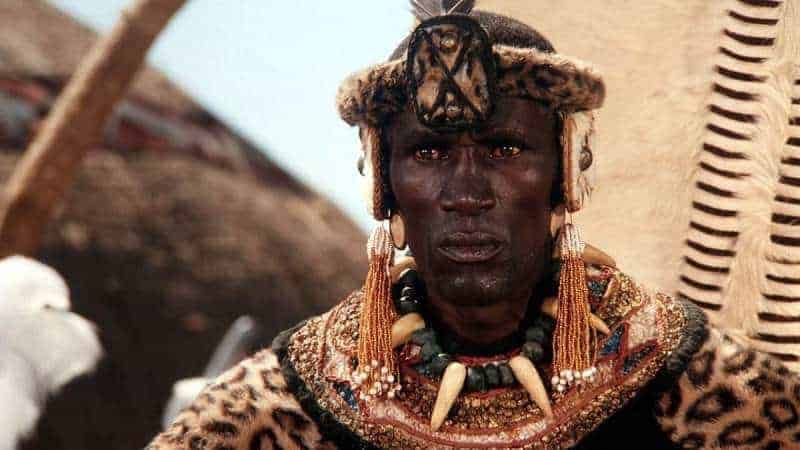The Zulu Kingdom was a relatively short-lived kingdom which was founded by Shaka Zulu in around 1816, although some historians believe it was earlier. One of its most memorable victories was the defeat of the British in the Battle of Isandlwana in 1879 in what was Britain’s worst-ever defeat at the hands of an African kingdom. Eventually, Britain’s greater resources told, and it defeated the Zulus at the Siege of Ulundi less than six months later.
Its founder, Shaka Zulu, is the subject of many myths and legends. What we know is that he introduced various social, military, and cultural reforms and created an organized and centralized Zulu state. Among the more important innovations was the transformation of the Zulu army including new tactics and the introduction of new weapons. He also oversaw the integration of beaten clans into the Zulu. These individuals were given full equality which meant they could gain promotions in the army and civil service. Now, let’s take a look at the life of the legendary Shaka Zulu.

Early Life
Shaka was probably born in 1787 in KwaZulu-Natal. It is alleged that he was the product of ukuhlobonga, a tradition which involved sexual foreplay without penetration. Legend has it that his parents got carried away and he was conceived. As a result, Shaka was illegitimate and was taunted during his childhood. In Shaka, Dan Wylie asserts that the illegitimacy story is false and slanderous. After all, his father, Senzangakhona, married his mother, Nandi, and there were no mentions of Shaka being a bastard until after his death. Another suggestion is that Senzangakhona had not been circumcised; which was deemed to be a proper initiation into manhood. He was quickly circumcised and married Nandi, so Shaka was, in fact, legitimate.
Shaka’s life, right up until he became the leader of the Zulu Kingdom in 1816, is a source of mystery which of course means it is laden with information we can’t take at face value. For example, Shaka was allegedly bullied everywhere he went because of his supposed illegitimacy. Another dubious story says his father chased him and his mother away, so Shaka spent his childhood as an outsider in Nandi’s Langeni clan. Still, more tales say he was tormented by boys who trapped him with fecal matter buried in holes, he was forced to drink downstream from others, and he had hot curds poured all over his hands.

One of the details about his early life that isn’t disputed is the fact he went to the Mthethwa tribe. The reason is unclear. One story says his father grew jealous of Shaka and decided that his son must die. Shaka learned about his father’s plans and fled to the Mthethwa. Under the tutelage of Chief Dingiswayo, Shaka became a fierce warrior and also learned military tactics.
Over the next few years, Shaka, with the blessing of the Mthethwa, forged alliances with smaller neighbors as a means of preparing to fight against the marauding Ndwandwe tribe. Zulu sources make it clear that Shaka was involved in many battles where he honed his skills. There are also some unsavory details. For example, he apparently had a propensity to ambush girls on bush paths where he would have intercourse with them. Many of these girls became impregnated. Soon, he would have the chance to emerge from the shadows and become the leader of a kingdom.

